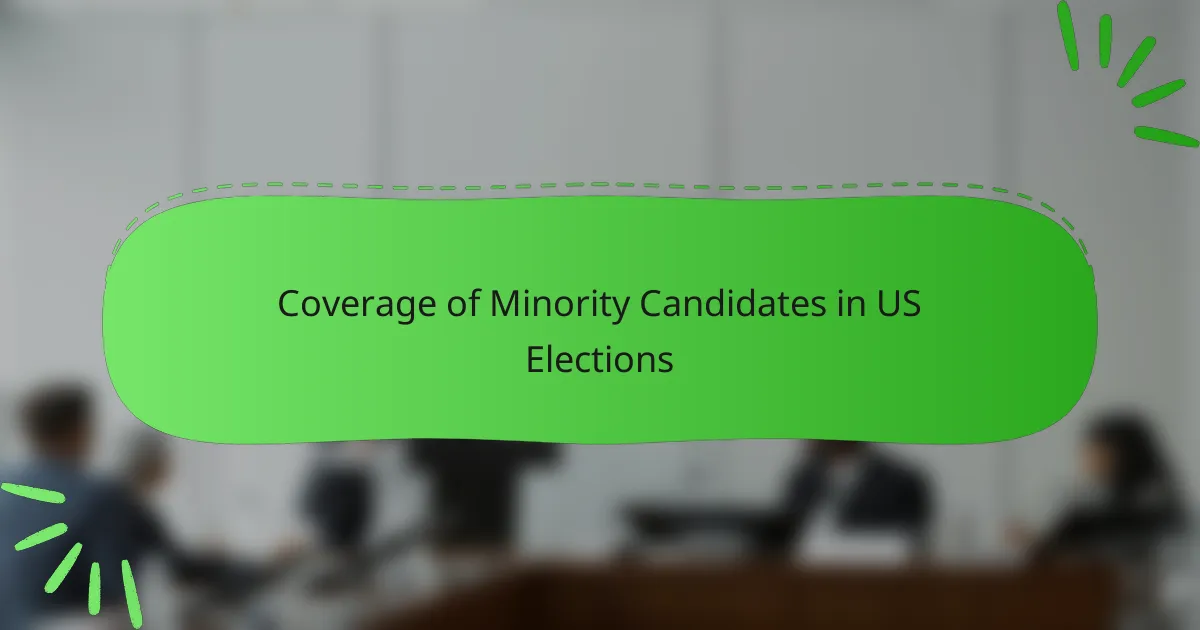The article focuses on the coverage of minority candidates in US elections, highlighting the disparities in representation across various levels of government. As of 2020, only 22% of elected officials in Congress and approximately 27% of state legislators come from minority backgrounds, indicating significant underrepresentation compared to white candidates. Local elections also reflect these trends, […]
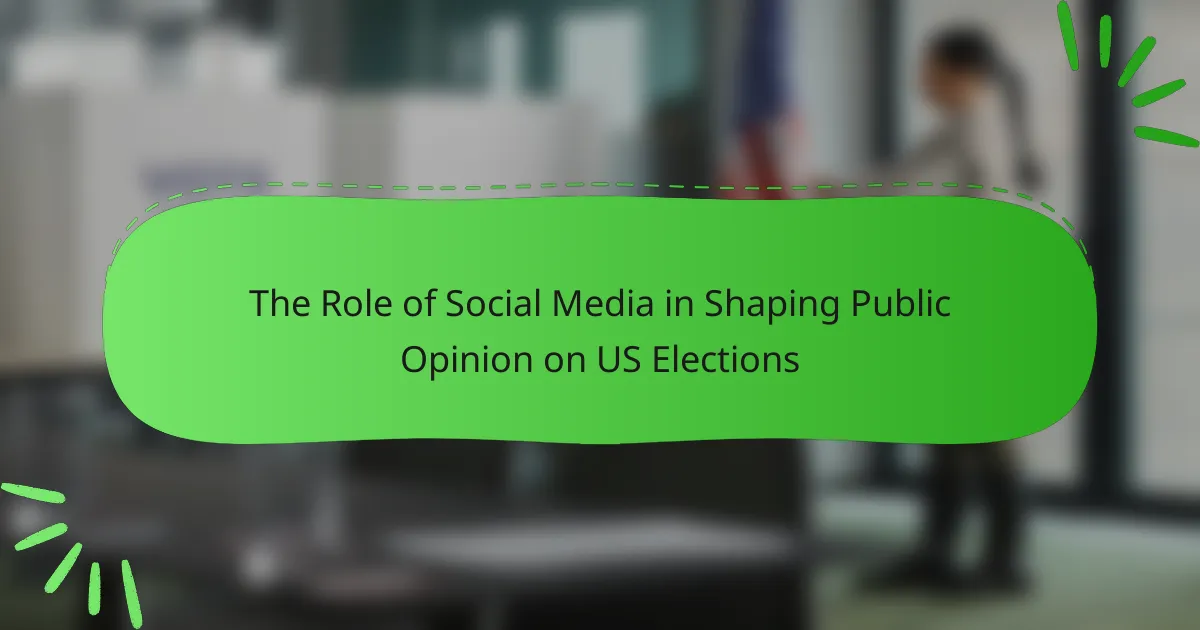
The Role of Social Media in Shaping Public Opinion on US Elections
Social media is a significant platform influencing public opinion during US elections. It allows users to communicate instantly, share information, and access a variety of perspectives on candidates and policies. The role of social media algorithms in amplifying popular content affects what information reaches users, contributing to the shaping of electoral narratives. With 69% of […]
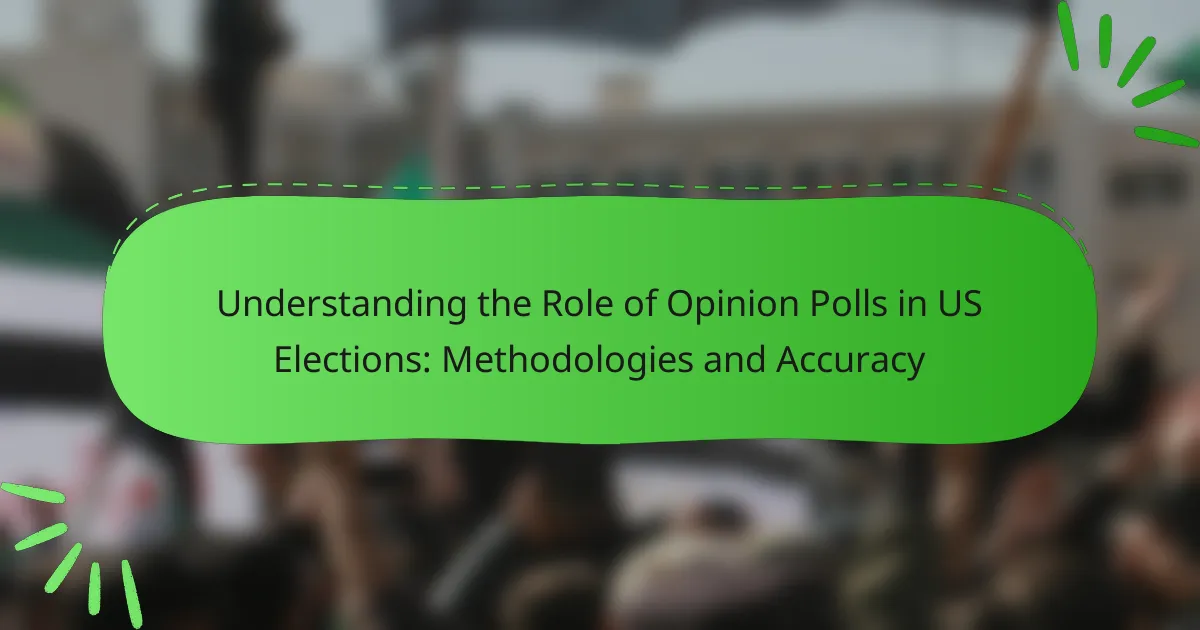
Understanding the Role of Opinion Polls in US Elections: Methodologies and Accuracy
Opinion polls are surveys designed to measure public opinion on various issues, particularly regarding candidate preferences in US elections. These polls collect data from a representative sample of voters, providing insights that inform campaign strategies and highlight key voter concerns. The article explores the methodologies employed in opinion polling, including telephone surveys, online surveys, and […]
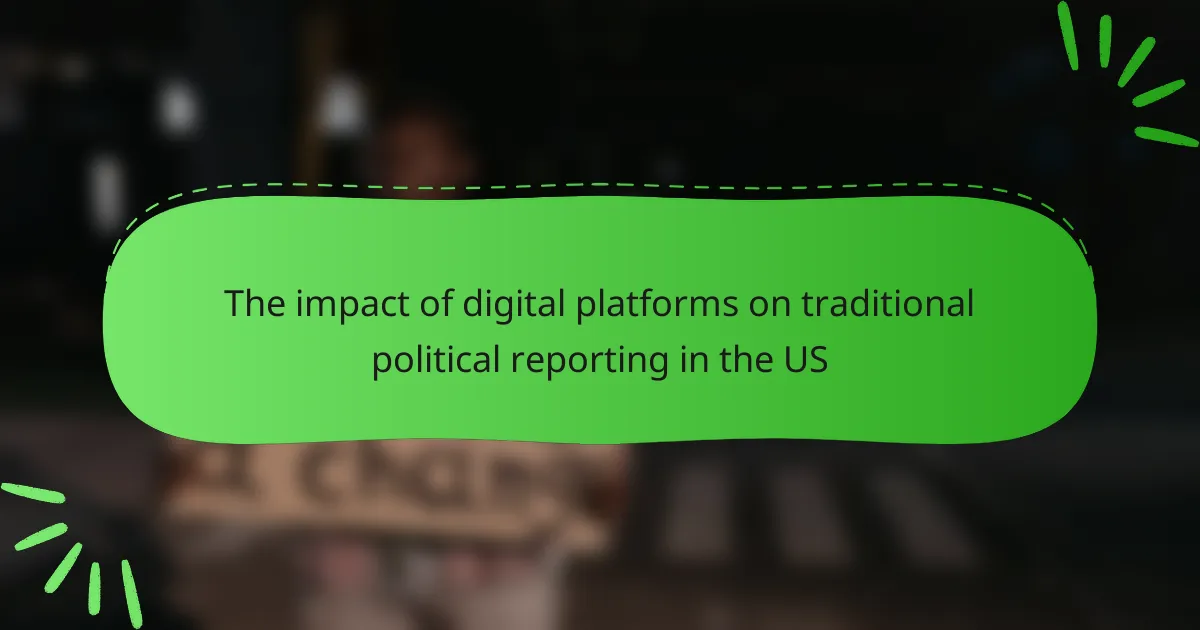
The impact of digital platforms on traditional political reporting in the US
Digital platforms are transforming traditional political reporting in the United States by accelerating news dissemination and enabling real-time updates through social media. Journalists now engage directly with audiences, allowing citizens to participate in reporting and commentary, which introduces diverse perspectives but also raises concerns about misinformation. Social media platforms, such as Twitter and Facebook, have […]
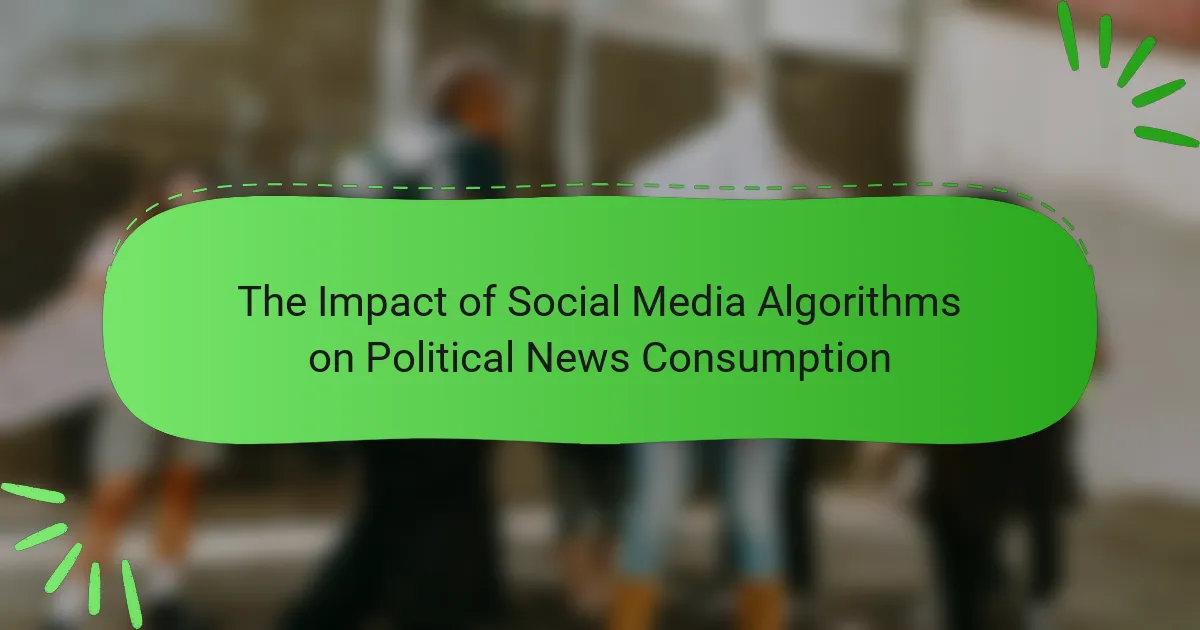
The Impact of Social Media Algorithms on Political News Consumption
Social media algorithms play a crucial role in shaping political news consumption by prioritizing content based on user engagement, relevance, and personalization. These algorithms analyze user behavior to deliver news articles that align with individual preferences, often resulting in echo chambers that limit exposure to diverse viewpoints. Research indicates that this algorithm-driven approach can distort […]
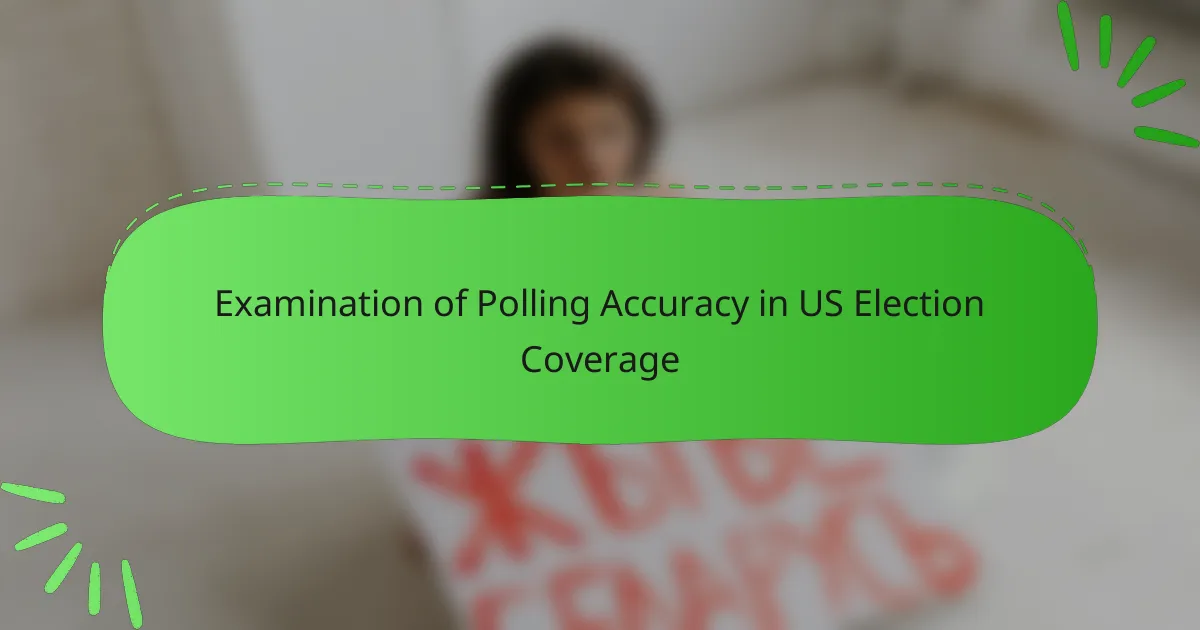
Examination of Polling Accuracy in US Election Coverage
The article examines polling accuracy in US election coverage, focusing on how well polls predict election outcomes. It analyzes methodologies used in polling, including sample size and demographic representation, which are crucial for understanding voter sentiment and shaping campaign strategies. Historical data reveals discrepancies between poll predictions and actual results, particularly evident in close races […]
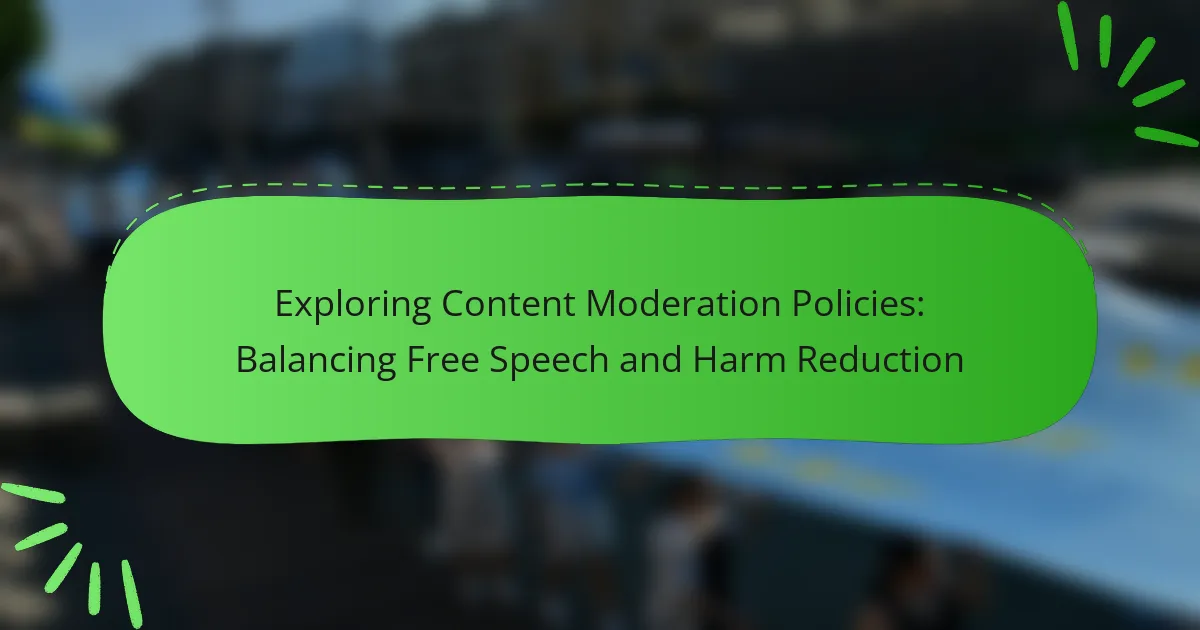
Exploring Content Moderation Policies: Balancing Free Speech and Harm Reduction
Content moderation policies are essential guidelines that govern the management of user-generated content on digital platforms, determining acceptable and unacceptable material. These policies aim to protect users from harmful content while fostering a safe online environment. Various types of content moderation, including automated, human, and hybrid approaches, each have distinct advantages and challenges in terms […]
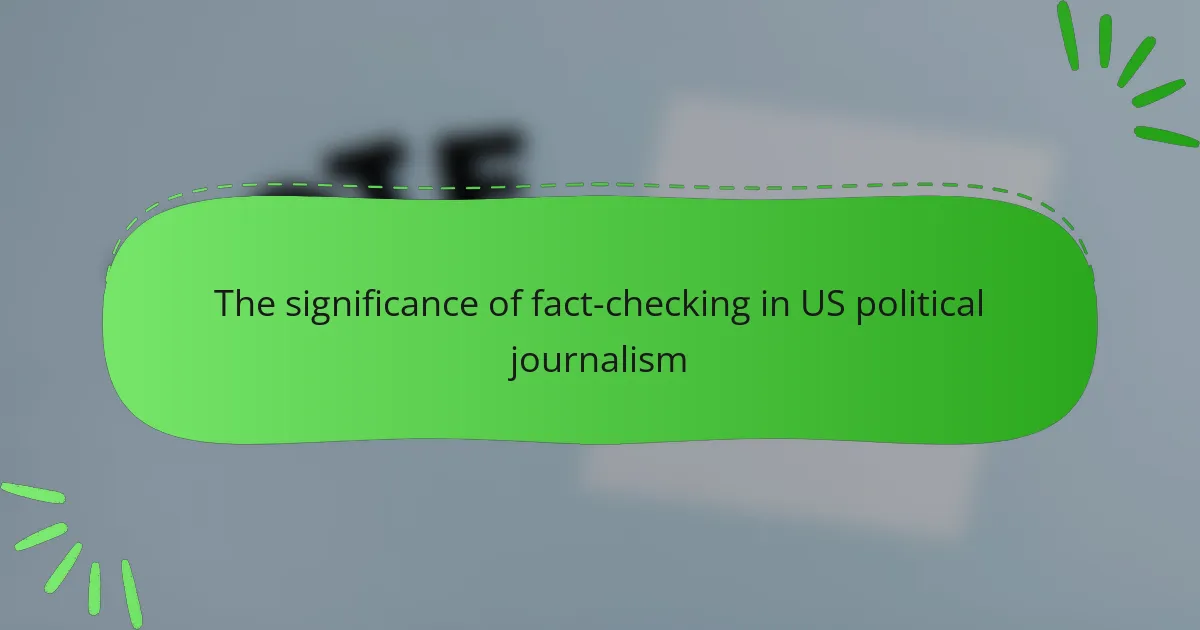
The significance of fact-checking in US political journalism
Fact-checking is a crucial component of US political journalism that ensures the accuracy of information disseminated to the public. It holds politicians accountable for their statements, combats misinformation, and promotes an informed citizenry. Research indicates that fact-checking can significantly influence public opinion and voting behavior, with a Pew Research Center study revealing that 62% of […]
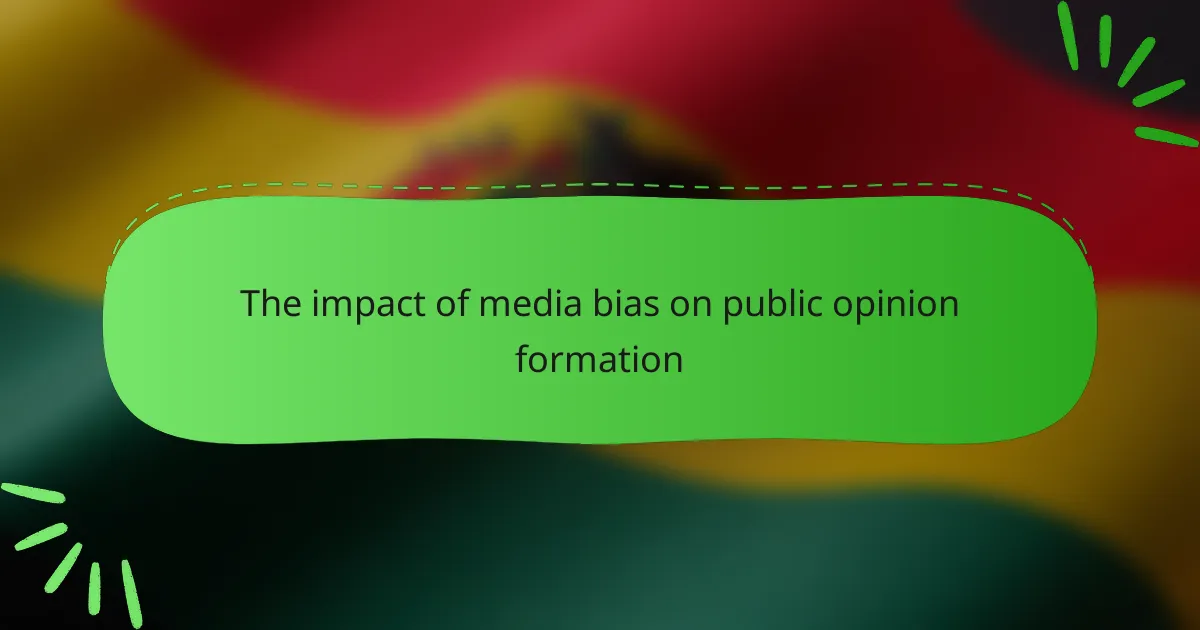
The impact of media bias on public opinion formation
Media bias is a significant factor influencing the formation of public opinion. Biased reporting can shape perceptions by highlighting certain viewpoints while downplaying others, leading to a distorted understanding of issues. Research indicates that media framing has a profound effect on audience beliefs and attitudes, with studies such as the 2017 Pew Research Center analysis […]
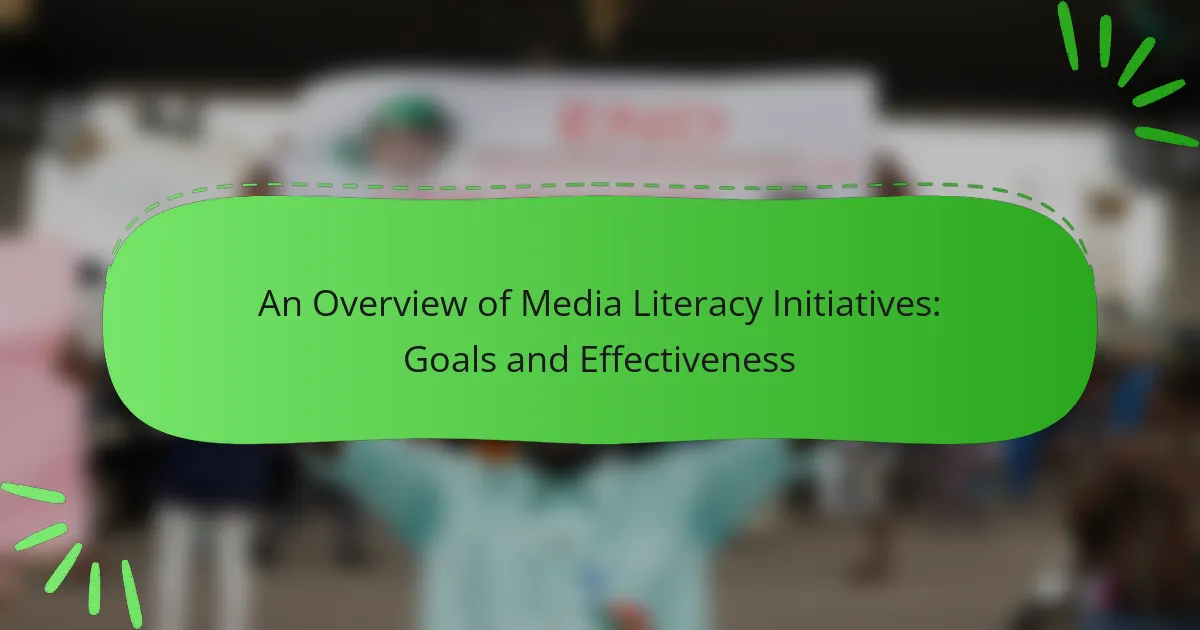
An Overview of Media Literacy Initiatives: Goals and Effectiveness
Media literacy initiatives are educational programs aimed at enhancing individuals’ critical thinking skills regarding media consumption. These initiatives target diverse demographics, including students, parents, and educators, focusing on the analysis, evaluation, and creation of media content. Research indicates that participation in media literacy programs can significantly reduce misinformation and promote informed decision-making, with studies highlighting […]
